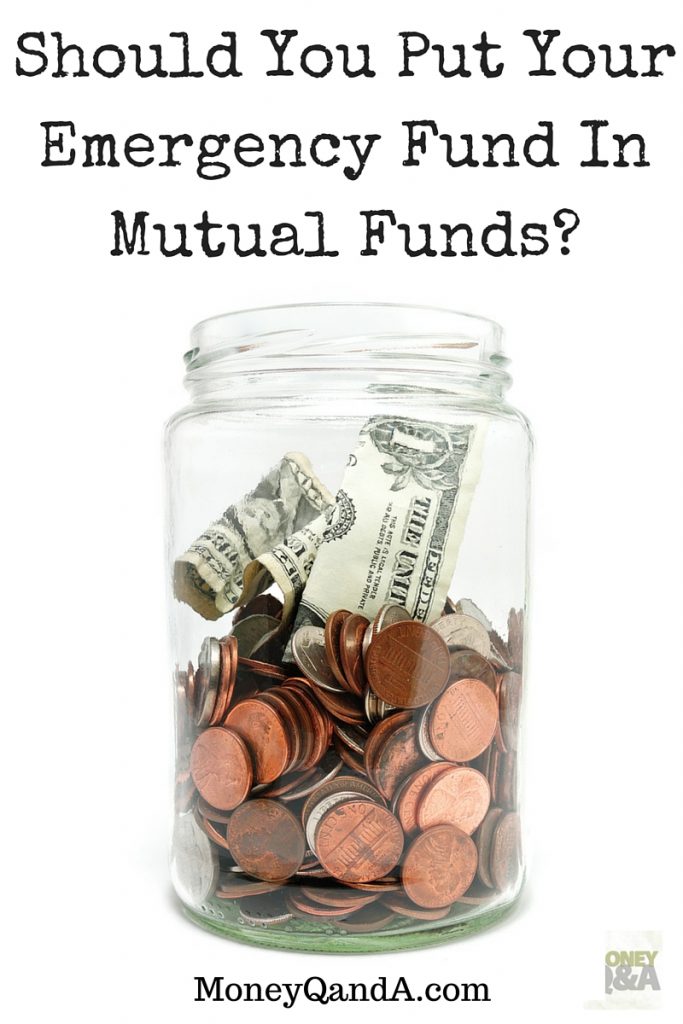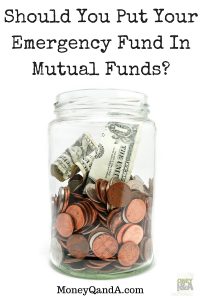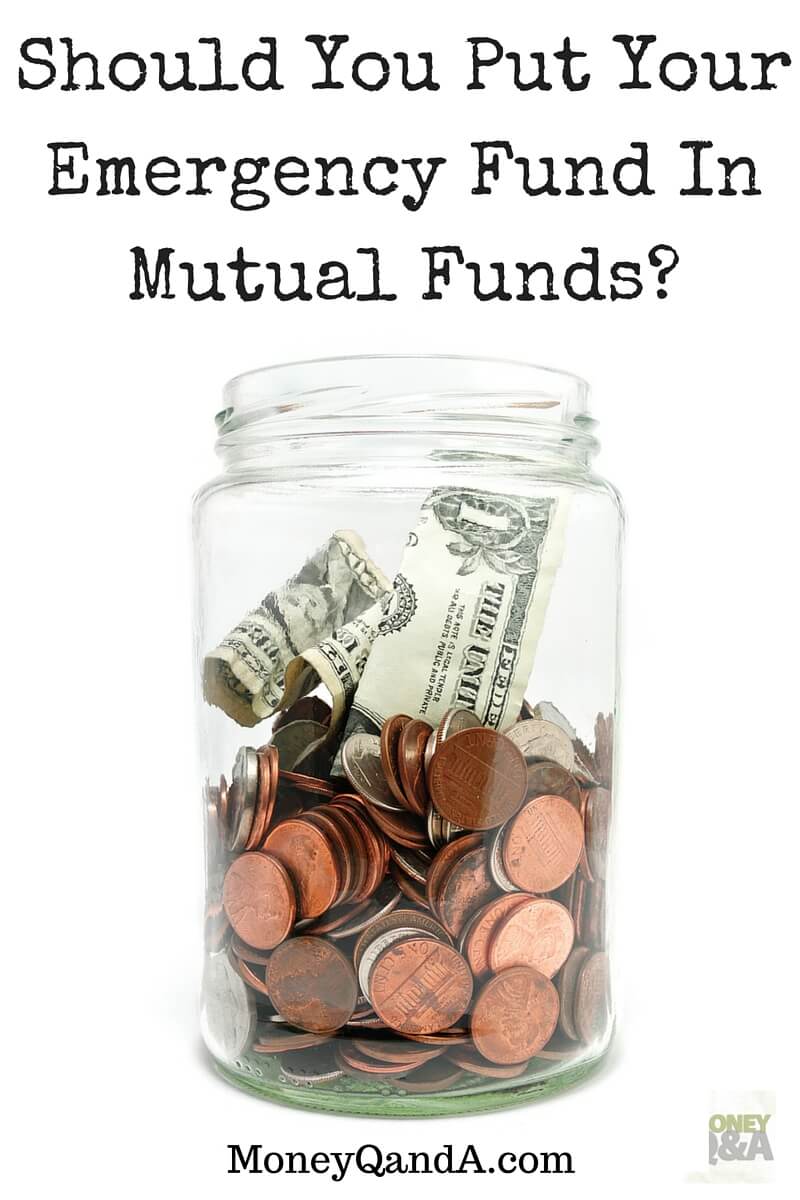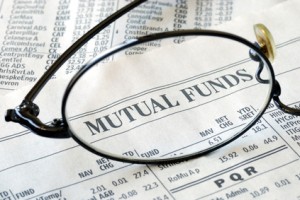This is a Reader Question in our the Reader’s Questions Series which highlight questions emailed to me by you, the readers of Money Q&A. Be sure to find out at the end of this article how you can receive a free copy of Dave Ramsey’s book, The Total Money Makeover if your money question is chosen to be featured on a future blog post.
If you’re not familiar with Dave Ramsey’s book, you should run right out and get it. It is one of my top ten best personal finance books that everyone should read. Now…on to our reader’s question.
This week’s featured question is from Jen who asks, “Should you invest an emergency fund in mutual funds?”
Invest Emergency Fund
Should you invest emergency fund in mutual funds? Where should you keep your emergency fund money until you need it? Here’s what you need to know.
Emergency Funds Are Often Boring
The short answer to your question is no. You should not put your emergency fund in mutual funds.
Many people are hesitant to put their emergency fund in something as simple as a savings account or a money market fund because they do not earn very much interest. If you have a fully funded emergency fund of three to six months of living expenses, you may have between $10,000 and $20,000 just sitting around with nothing to do.
The hard part is telling ourselves that that is okay. That money, however unexciting as it is, is doing exactly what it is supposed to. It is just sitting there. It is waiting to be used in an emergency. Stocks, bonds, mutual funds, and even certificates of deposit are medium to long-term investments.
Or, a certificate of deposit can even lock your money essentially into a contract that makes it very hard to withdrawal that money if you have an emergency. Investments are for long term growth for your financial goals such as saving for a down payment, funding your children’s 529 College Saving Plan, or saving for retirement. Mutual funds and investing were not designed as a short-term savings option.
You May Need Your Emergency Fund Tomorrow
Most financial planners recommend investing in stock and mutual funds with money that you will not need to use in the next five years. The problem with emergencies are that you never know when they will crop up. They have a bad habit of always happening when they are least expect and often when you can least afford it.
That is why it is very important to not have your emergency fund in mutual funds and other investments. You want to be able to have access to your money in an emergency. You want your funds to be very liquid with little to no time or cost associated with pulling that money out of your emergency fund.
An Emergency Fund in Mutual Funds May Be Too Risky
Another reason that you do not want to put your emergency fund in mutual funds is that there is too much risk associated with the stock market and mutual funds for something that could be used at any moment. Even though the US stock market has a historical average of approximately an 8% rate of return annually, there can be bouts of dramatic swings as we have seen first hand over the past few weeks.
You do not want to invest your emergency fund in something that may have significantly dropped in value right when you need to pull it out for an emergency. It is much better to have your emergency fund in something with little to no risk and sacrifice the potential for a few extra percentage points on your returns.
Where to Put Your Emergency Fund
So, if you should not put your emergency fund in mutual funds, where should you stash it? Many financial planners recommend that you put your mutual fund in either a simple savings account or a money market account. Personally, my wife and I have ours in a money market account that earns a slightly higher interest rate than a simple savings account, but it is extremely safe and backed by FDIC insurance.
Another option that you have is to use a high-yield online savings account like the ones offered by ING Direct. You have easy access to your money any time you need it, earn a good interest rate, backed by FDIC insurance, no fees, no minimum deposits, and also have free transfers to and from your brick and mortar bank as well.
You may be tempted to squeeze out a few more percentage points on the rate of return that you earn on your emergency fund. But, you should not put your emergency fund in mutual funds. Emergencies can crop up at any time, and you want to ensure that your money is available for you to use if needed. It is okay not to earn the highest interest rate available on your emergency fund.
If you’re looking for places to keep traditional investment accounts, you might want to check out investing with Betterment or Stash Invest.
The robo-advisor, M1 Finance, gives the more established, sophisticated investors great investing options. M1 Finance simplifies the investment process for beginning and experienced investors alike. Unlike other robo-advisors, M1 Finance does not charge a fee, and it gives you the option of taking more control over your investments if you want them (and less if you don’t).
Past Readers’ Questions:
- Is It Better To Save For Closing Costs Or Pay Down Loan?
- Is A $1,000 Emergency Fund Enough To Start?
- How To Prioritize Which Bills To Pay First
- Should You Put Your Emergency Fund In Mutual Funds?
- How Do You Start Saving If You Live Paycheck To Paycheck?
- How To Find A Payment Plan Without Cutting Necessities
- Is My Money Save In A Bank?
- What To Invest In After The Company Match
Do you have a money question that you would like to ask? Email me your money, investing, retirement, savings, or other question to Questions[at]MoneyQandA.com.
If I pick your question for the next article in the series, I’ll send you a free copy of Dave Ramsey’s book, The Total Money Makeover.





Thank you for the helpful reminder on the fact that emergency means you don’t know when it is going to arise! While I had, gulp, split my emergency fund into a savings account and mutual fund account, I will stop thinking about all of the money as the emergency fund. So now that means I need to get that savings account back to emergency fund level. . .
This is a question I get asked all the time. I’m glad you answer it here ??
I personally keep my emergency fund in an offset account that offsets the interest on my mortgage.
The Emergency Fund needs to accessible and is not meant to be used for risky investments or investments where you are too scared to use the money because “the market might climb tomorrow”
I have a small moneybox seperated in to 3 spaces, one for savings, one for shopping and one for sharing (which I changed to emergency). Long story short I’m not sure if I should put my extra money in the savings part or emergency. The savings will more than likely be spent someday (as that’s kinda the point) and I’m currently saving up money to do a big project (which is really important) but emergencies pop up a lot, especially with animals. It’s not a lot of money; ($60 maybe?) What do you suggest?